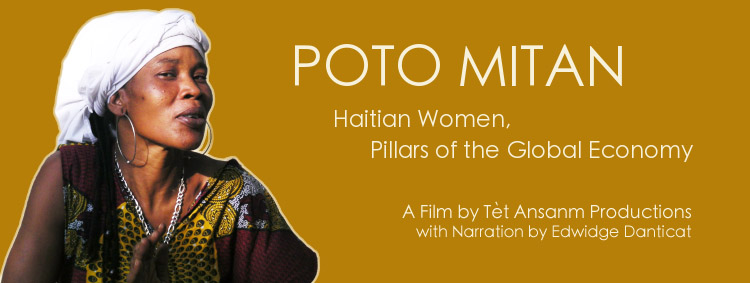Frisline

risline worked in a factory producing t-shirts for a host of U.S. companies, in the state-run industrial park, SONAPI. Through Frisline's story we begin to see the historical forces at play, creating the dire situations that currently surround Haitian factory workers. Frisline was pushed off her land in the mountains in the north of Haiti by policies promoted by the U.S. government and dictator Jean-Claude Duvalier, to integrate Haiti into the world market. Like others, she joined the mass of people filling up Pòtoprens's new and growing shantytowns built by workers like her, who migrated from the provinces to accommodate their housing needs. As an unplanned, crowded neighborhood, there are many constant infrastructure problems in Nazon, no electricity or running water. Frisline organized a union, and through their struggles they achieved their goals, only to have to pay the male union staff with most of their gains. This experience has not broken but hardened Frisline, who sought out a woman's group. She joined the group with women from other factories to discuss and address common issues, including their living conditions. Frisline's story brings up the broader historical context of how the crowded shantytowns were created. Left hanging from male-dominated unions, Frisline discusses the need for new forms of worker organizing, such as women's organizations. After decades of work, she was recently laid off, penniless. Rather than retreat, Frisline has redoubled her efforts to bring about change.
Read about:



